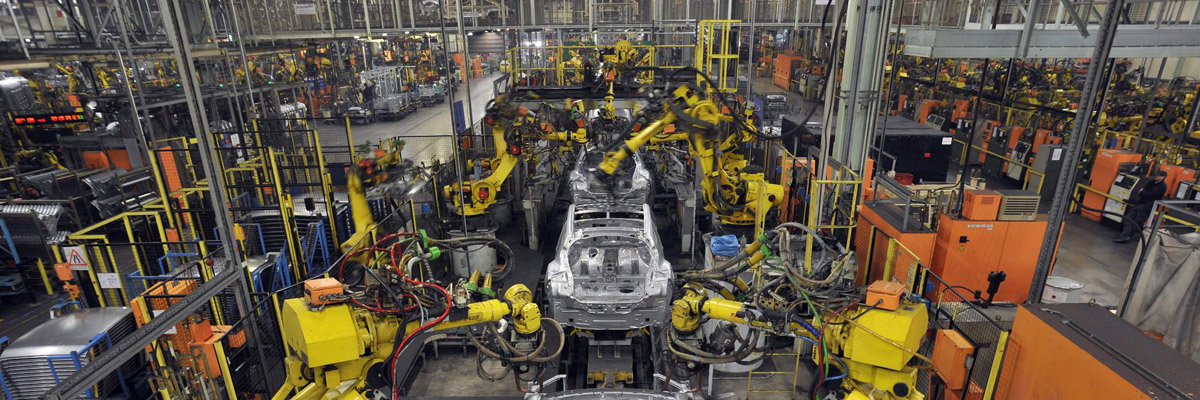News : Algeria
Algeria’s domestic auto industry plans hit serious snags
2017-07-23

The Algerian government has promised for almost two years to expand the domestic auto industry and make the vehicles produced available to the public, a plan it said is aimed at trimming imports, providing jobs and diversifying the economy away from oil-and-gas reliance. Allegations of corruption and mismanagement, however, have put the ambitious programme under scrutiny.
A few weeks before an Algerian Volkswagen affiliate was to deliver new car models, Algerian Minister of Industry and Mining Mahjoub Bedda denounced the programme as a corrupt scheme to disguise the importation of foreign cars.
“They almost made us believe in the miracle that (home-made) cars would be criss-crossing the country’s roads,” said Algerian economist Ali Bahmane, referring to the government’s promises.
Under the programme, foreign carmakers in partnership with local investors are eligible for a wide range of state incentives, including tax exemptions and foreign currency transfer waivers to pay for the imported parts to be assembled in local plants. The incentives were meant to encourage the growth of Algeria’s car industry and reduce the outflow of foreign currency by cutting vehicle imports.
Some auto investors, however, have been accused of inflating import bills to bypass currency transfer restrictions.
“The assessment of what occurred in the automobile industry showed there are disguised imports rather than locally assembled cars,” said Bedda. “The level of integration in the local economy failed to reach its target.”
Bedda said a preliminary review of the government programme found that several terms had been breached. “The cars have been sold at higher prices than in the previous period while the state has lost tax revenue,” he said, adding that jobs have not been created as planned.
As a result, the government postponed the programme while officials look into ways to address the loopholes, the minister said.
“The situation calls for revising the framework and regulations related to this industry to encourage the creation of small and middle-size enterprises and services linked to car manufacturing industry,” he said.
“This assessment does not mean we have abandoned this industry, which remains an important business. We are conducting a review to come up with a new vision that makes it sustainable and more accessible to automotive equipment manufacturers and other related services and businesses.”
It is not known how authorities plan to deal with the foreign projects already under way, such as those by Renault and Volkswagen.
On paper, Algeria is arguably the best place in the Maghreb to develop an auto industry. Its high demand for vehicles and low energy costs give it a comparative advantage over other countries in the region. In 2014, Algeria ranked as the Maghreb’s largest market for cars, importing about 40,000 per year.
In the 15 years leading up to 2016, Algeria imported 4 million cars, spending $25 billion, industry and customs figures indicated. Industry experts estimated that increased wages and population growth could soon drive demand to 2.5 million new cars a year.
Fuel subsidies also help keep energy costs low relative to Morocco, Algeria’s main competitor. Algeria’s total energy subsidies are estimated at about $45 billion annually by the International Monetary Fund.
The main barrier to foreign investment is the country’s shareholder regulations, which require local partners to own 51% of any project.
To establish a healthy industrial sector, Algeria must compete with Morocco, where French automobile manufacturing firm Renault produces up to 400,000 units annually.
Morocco used a plant in Tangiers as a platform to export cars through Tangier Med port, whose location on the Moroccan coast nearest to the Iberian Peninsula makes it a springboard for maritime trade routes to Europe, the Americas and Africa.
To compete, Algeria is using its huge domestic market to convince foreign car manufacturers to open local plants.
In 2014, Renault began operating a plant in Algeria’s western city of Oran, where it plans to produce 75,000 vehicles annually. German automaker Volkswagen is planning to start producing this month at its assembly plant in the western Relizane province.
Over the past two years, government officials have touted the domestic auto programme as a potential source of thousands of new jobs.
Why previous officials failed to address the programme’s major flaws is unclear.
“We will never know the truth, at least officially, because, as usual, we are only given pieces of information or complete silence from top authorities,” Bahmane said. “If the crime lies in the bogus domestic car industry programme itself, it also lies in the official silence that wraps it up.”
He and other experts wondered why state bodies tasked with watching over such projects failed to sound the alarm about the plan’s flaws.
“Will such bodies like the Finance Ministry, the judiciary, the parliament and others react now that the scandal blew up in plain sight?” asked Bahmane, who likened the embattled car project to previous corruption cases involving state-owned energy companies Sonatrach and East-West Highway.
Algeria’s East West-Highway, originally a $6 billion project covering 1,100km, cost the state more than $15 billion because of rampant corruption, making it the most expensive road in the world.
Originel Source : hearabweekly.com
 Ily Es
Ily Es
Translator
- Your comment
Select Language/Country
© 2016 Naciha.com
